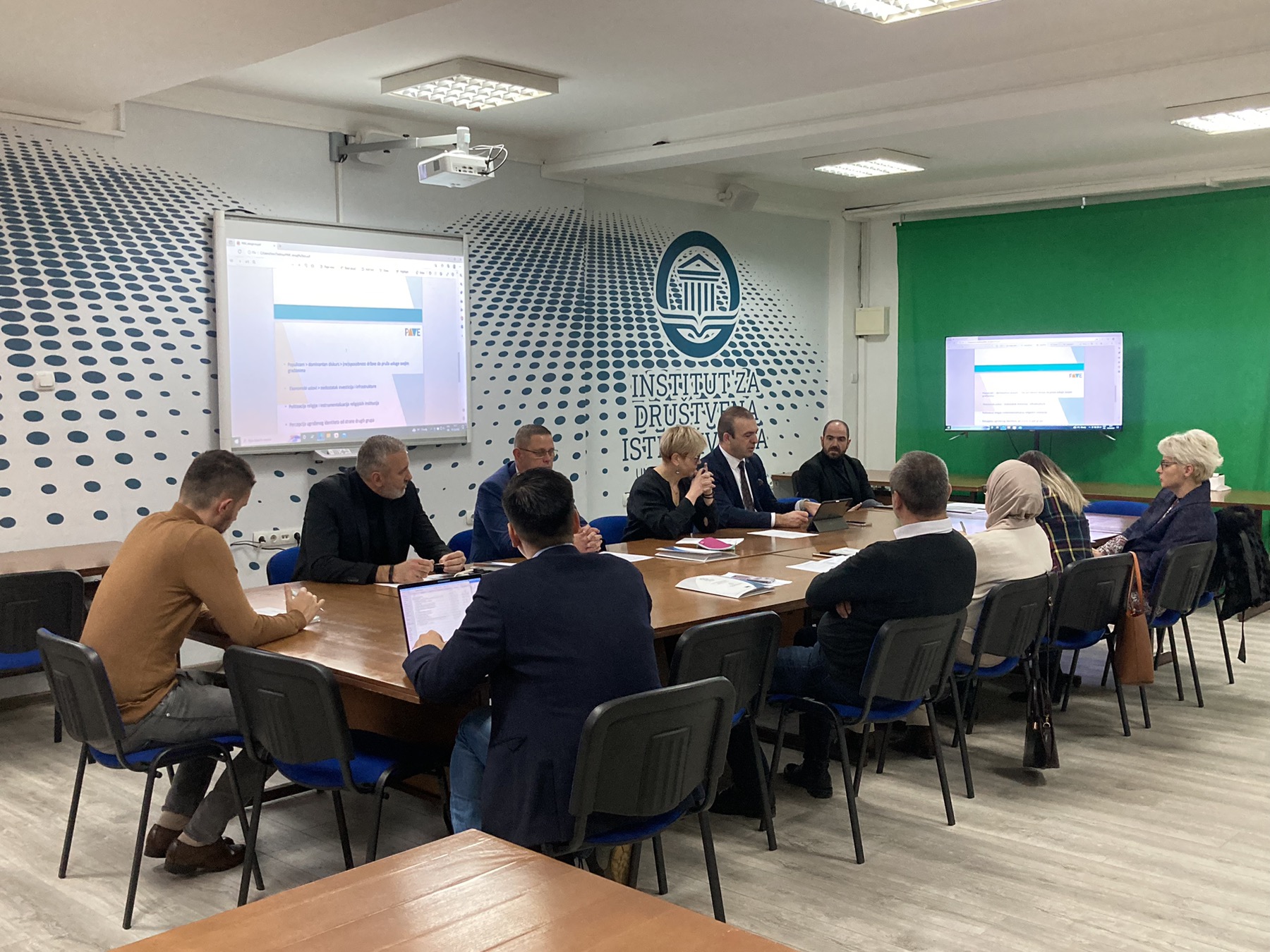PAVE Policy Roundtable in Sarajevo
As part of the PAVE project, the Faculty of Political Science at the University of Sarajevo (UNSA) organised a roundtable on December 1st, 2022, where the results of a two-year study of cumulative extremism in Bosnia and Herzegovina (BiH), Serbia, Kosovo, and North Macedonia, as well as policy recommendations for Bosnia and Herzegovina, were presented.
The meeting was attended by members of the PAVE project team, members of the sister project CONNEKT, representatives of state institutions (the Ministry of Security of Bosnia and Herzegovina, and the Intelligence and Security Agency of Bosnia and Herzegovina), and civil society organisations (Atlantic Initiative, PRONI Youth Development Center, and the Balkan Investigative Reporting Network), and religious institutions (Islamic Community in Bosnia and Herzegovina).

The meeting was opened by UNSA Project Coordinator Prof. Sead Turcalo, who presented the PAVE project as well as the results of the research on cumulative extremism in the Balkans. Jelena Brkic Smigoc then explained the role of the University of Sarajevo in the PAVE project as well as the challenges the team faced during field research. Finally, Mirza Smajić presented a policy brief which contained recommendations for state institutions, international organisations, and civil society organisations.
Afterwards, several interventions by external speakers addressed three core questions: What is your institution’s role in building resilience against extremism? How can your institution contribute to resilience to cumulative extremism (specifically political, and religious) in Bosnia and Herzegovina? What were your previous experiences in the prevention of extremism? All participants offered their own perspectives and shared their experiences in extremism prevention. At the same time, they emphasised the importance of mutual exchange of knowledge and experiences and asserted that such forums are important because they establish contacts and inter-institutional cooperation. In addition, it was concluded that there are situations when the work of practitioners often goes unnoticed, primarily that of civil society organisations. The representatives of the state institutions pointed out a step forward regarding the Counter-Terrorism Strategy in BiH 2021–2026, which, for the first time, has detailed explanations of dangers coming from ultra-conservative, ethno-nationalist, and right-wing extremism, as well as a truly multisector and multi-stakeholder approach. In the end, the representative of the Islamic Community emphasised the commitment of this religious institution to further resilience-building initiatives, while noting the lack of will from other religious institutions (Orthodox and Catholic churches) to discuss these topics.